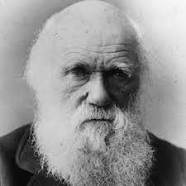Throughout history, new scientific theories and discoveries have been greeted with skepticism and opposition, despite overwhelming data to support them. In the end, science always wins. Not that it is always right the first time. But if an explanation of a phenomenon is not right, it is dropped or amended over time to make it right.
Consider three of the most prominent examples.
When the development of more powerful lenses helped him to make observations disproving the belief that earth was at the center of the solar system, Galileo was threatened with death if he did not recant. In the process of finding what was making cows produce spoilt milk, Louis Pasteur was ridiculed when he came up with data supporting a germ theory. And the most controversial of all, Charles Darwin’s observations of change over time in plants and animals which led to the theory of evolution.
Although the theory is still opposed by many people on grounds that it conflicts with the Bible’s account of creation, overwhelming evidence has been gathered in many fields of study to support it in the more than a century and a half since and it is now accepted science.

There are many other examples of rejection of scientific findings, even by educated persons in present-day America. Many parents refuse to allow their children to be vaccinated for fear the vaccinations will cause autism even though this connection has not been supported and the consequences of not vaccinating can be tragic. What of the fears of foods containing GMOs (genetically modified organisms) even though a lot of research supports that it is safe? Some of the opposition to that I have seen among my own relatives.
The most serious controversy ever faced by science involves global warming which could, at its most extreme when the ice melts, release enough poisons into the atmosphere from dead vegetation long buried beneath the great ice masses to wipe out all life on this planet. It almost happened once before. In our ancient past a similar event poisoned the earth for many years, killing off most of life existing at that time.
Among the worst of those who block efforts to attack the problem are politicians defending special interests that exploit fossil fuels. But many people who have no vested interest also refuse to accept the overwhelming evidence that global warming is accelerated and considerably intensified by our pollution of the atmosphere.
Yet there are hopeful signs of change. Costs of the storms and droughts to farmers are being computed and even conservative farm magazines are tentatively and cautiously pointing out these costs to farmers, although some don’t use the words “global warming.” There is also some erosion opposition after fierce droughts and huge forest fires in the West and extreme cold, severe tornados, and record rainfall causing major damages and destructive floods in much of the rest of the country.
Is this the year that change in people’s attitudes toward global warming begins accelerating? Predictions are for a winter much stronger than last year’s. Out in the Pacific this year El Nino, a huge warm water area has formed and may produce the most powerful storms we have ever seen. If anything good comes from the huge losses to follow, it may be that more people will start to believe the scientists are right and that acceptance may yet save mankind from having to live on a largely uninhabitable planet or even from extinction.
Lewis Donohew retired from the University of Kentucky College of Communications in 1999 after nearly 35 years of service and having earned a national reputation as a communications scholar and researcher. Now down on his farm growing grapes and living close to the earth, he contemplates issues of the day from a lifetime of experience and a love of the land.



















